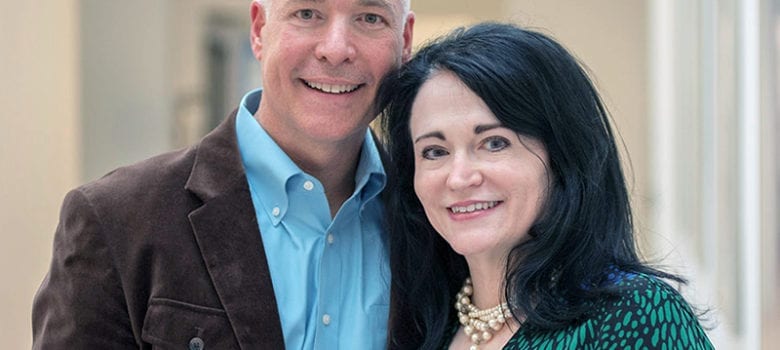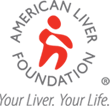Lisa’s Story
Bile Duct Cancer (cholangiocarcinoma)
The word cholangiocarcinoma was not part of our vocabulary till 2010, along with words like tumor markers, bilirubin, liver panels, bile ducts and so many more words we didn’t want to know. I use the word “we” because this is a family journey. I was diagnosed with stage IV intrahepatic cholangiocarcinoma at the age of 46 and given six months to live. I didn’t feel sick, so how could I be dying?
I remember the day well, I left work early to take our oldest son Jacob to see a gastroenterologist. He would soon be leaving for college, and we thought he might be lactose intolerant. The doctor, who is also a family friend, asked me how I was doing, and I said fine. He asked again and I said tired. Thank goodness this raised a red flag for him, because in my mind I thought everyone was tired. He pressed for more information, and I remembered I had a tenderness under my right breast, but I had been told it was costochondritis and never gave it another thought. He finished with our son and turned to me and said I would like you to have an abdominal ultrasound tomorrow, I suspect you may have a gallbladder problem.
The next day, I reluctantly went for what I thought was an unnecessary test during lunch. I returned to work and shortly after, my doctor was on the phone. He told me that I did not have a gallbladder problem but, instead I had a large mass occupying about 75% of my liver. I don’t think I heard anything after the word mass. I grabbed everything off my desk, threw it in my bag and ran out of work crying. I never thought it would be my last day at a position and company that I loved so much; I had spent 22 years with this company, and everyone was like family.
The next week was a whirlwind of tests and appointments. The prognosis was bile duct cancer also known as cholangiocarcinoma, a rare and deadly cancer of the liver with no cure. I was told I was not a candidate for a surgical liver resection, and I could choose chemotherapy, but it would only prolong my life and not be curative. Hope of growing old with my husband and our two sons, Jacob and Noah was a fleeting thought. I have several heroes in my life and my husband David is one of them. We met in high school at the young age of 16 and have been soulmates since. David said six months was unacceptable and researched the best places and doctors for liver cancers. We are fortunate that The Cleveland Clinic is a short drive from our house.
Our first appointment at Cleveland Clinic was with my second hero, Dr. John Fung, a liver surgeon. He was kind and compassionate and assured us he could remove the cancerous tumor from my liver. Our hope was restored, but we were still cautiously optimistic knowing the surgery came with great risks. I had 78% of my liver removed in an 11 1/2-hour surgery. It was followed by six months of chemotherapy. We were able to breathe a little easier, but it was short lived. The cancer would return 4 more times with a total of 8 tumors. There was another liver resection, several more chemotherapy regiments and SBRT (Steriotactic Body Radiation Therapy) multiple times.
Yes, I am a survivor, but it does not come without its own set of emotional and physical problems. The treatments have left me with daily pain, neuropathy, skin issues and more. I struggle with survivors’ guilt and quarterly scans, and blood work still give me an anxiety attack. These are nothing compared with dealing with active cancer, so I guess I’m blessed to have these new problems.
When I was first diagnosed, I felt so alone and I didn’t want other newly diagnosed patients to feel alone, so I decided to focus my energy on others. I’ve been mentoring patients since 2011 and it is my love and my passion. I’m also a volunteer Research Advocate and Patient Advocate for The Cholangiocarcinoma Foundation. The Cholangiocarcinoma Foundations website is the first place a newly diagnosed patient needs to go. It is an incredible resource and filled with the tools to navigate the best possible treatment protocols available. Our family established Craine’s Cholangiocarcinoma Crew(501c3) in 2012 and we raise research funds. I’ve had the opportunity to advocate on Capitol Hill for the The Liver Illness Visibility, Education and Research (LIVER) Act, the bill takes bold steps to increase investments in research, prevention, and awareness activities to address liver disease and liver cancer, which continues to grow in incidence and is the 2nd deadliest cancer. I researched and presented at my first poster session at AACR. My research was on the impact of having a mentor during a cancer journey. I’ve worked with Industry to make sure that the patient voice is heard in clinical trials and drug development. I’m a graduate of the Research Advocacy Network and The Scientist-Survivor Class of 2021.
My cancer and experiences have helped me to serve others in a more knowledgeable and compassionate way. The experiences have taught me to live, love and cherish each day, each breathe and each person who joins me on my journey. My recommendations for newly diagnosed cholangiocarcinoma patients are to to seek out a second or even third opinion with a multi-disciplinary team of cholangiocarcinoma experts, make sure you have biomarker testing, go to cholangiocarcinoma.org and never, never, never give up hope. Hope is learning from yesterday, living for today and hoping for tomorrow.
Last Updated on October 11, 2021
Share this page






